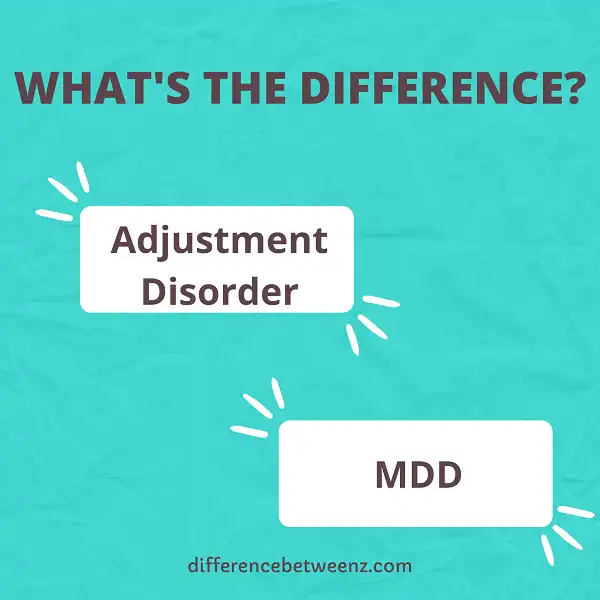Mental health conditions are serious illnesses that can impact daily life. There are a variety of conditions, and it can be difficult to determine which one you or a loved one may have. This article will explore the difference between adjustment disorder and major depressive disorder.
What is Adjustment Disorder?
Adjustment disorder is a type of mental illness that can occur when a person is unable to cope with a major life change or stressor. Symptoms may include sadness, anxiety, irritability, loss of appetite, trouble sleeping, and difficulty concentrating. While adjustment disorder is relatively common, it can be a serious condition that requires treatment. left untreated, it can lead to more serious mental health problems such as depression or anxiety disorders. Treatment for adjustment disorder typically includes counseling and therapy. Medication may also be prescribed if necessary. With treatment, most people with adjustment disorder are able to recover and live healthy, fulfilling lives.
What is MDD?
Major Depressive Disorder (MDD) is a mental disorder characterized by a persistent feeling of sadness or loss of interest in activities that someone normally enjoys. People with MDD may also experience a range of physical and emotional symptoms, including fatigue, changes in appetite, insomnia or sleeping too much, difficulty concentrating, and feelings of worthlessness or guilt.
MDD is a serious condition that can interfere with every aspect of someone’s life, from work to personal relationships. While there is no single cause of MDD, it is thought to be the result of a combination of genetic, biological, and environmental factors. Treatment for MDD typically involves a combination of medication and psychotherapy.
Difference between Adjustment Disorder and MDD
Major depressive disorder (MDD) and adjustment disorder (AD) are both psychiatric disorders that can cause similar symptoms, such as sadness, low energy, and difficulty concentrating. However, there are some key differences between the two disorders. MDD is characterized by a persistent period of depressed mood that lasts for at least two weeks, whereas AD typically only causes symptoms for a few months in response to a stressful event. In addition, MDD often leads to changes in sleeping and eating habits, whereas AD usually does not. Finally, people with MDD are more likely to experience feelings of hopelessness and worthlessness than those with AD. While both MDD and AD can be debilitating, understanding the key differences between the two disorders is important for getting the most effective treatment.
Conclusion
MDD is a more serious disorder that can cause significant impairment in functioning. It is characterized by a depressed mood or loss of interest in activities for at least two weeks. Additionally, there must be evidence of at least five of the following symptoms: change in appetite, weight, sleep, energy, concentration, self-esteem, and suicidal thoughts or behavior.
Adjustment Disorder does not have as many symptoms as MDD and typically resolves within six months. Symptoms include difficulty coping with stressors such as a death of a loved one or moving to a new city. Adjustment Disorder is diagnosed when these difficulties persist longer than the expected time frame and result in clinically significant distress or impairment in social, occupational, or other important areas of functioning.


